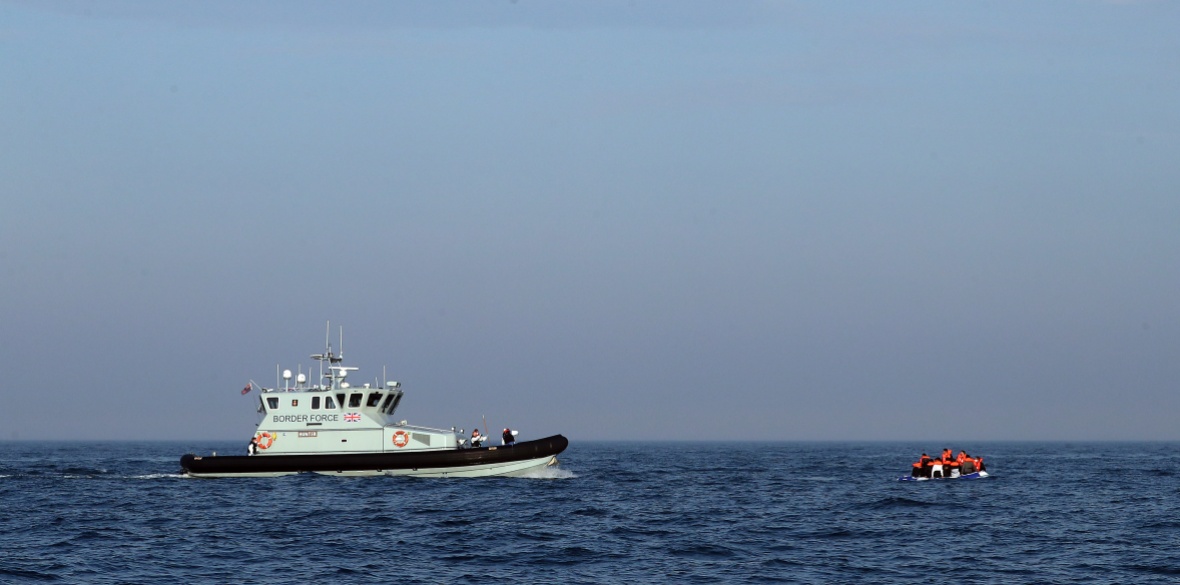This is the last article you can read this month
You can read more article this month
You can read more articles this month
Sorry your limit is up for this month
Reset on:
Please help support the Morning Star by subscribing here
NEW laws to make it easier to deport refugees who cross the Channel illegally could frustrate international law, campaigners warned today.
Prime Minister Boris Johnson branded the Channel crossings “a very bad and stupid and dangerous and criminal thing to do” and said he was looking to change the current legal framework that makes it “very very difficult then to send them away again.”
His official spokesman said Brexit would allow Britain to change rules currently bound by “inflexible and rigid” Dublin Regulations, saying time limits on returns were being “abused” by migrants and their lawyers.
But Joint Council for the Welfare of Immigrants chief executive Satbir Singh said it was “deeply worrying” that the PM appears “keen to frustrate international law by ‘returning’ people without calmly and fairly assessing their claims.”
And rights campaigners branded the PM’s language “inflammatory” and “inaccurate.”
The Refugee Council’s director of advocacy Lisa Doyle said: “Instead of scapegoating people in desperate circumstances, the Prime Minister and his government could address this by ensuring that people do not have to take these risks.
“If there were more safe and regular routes in place for people seeking asylum — such as a strong resettlement programme, humanitarian visas and reformed family-reunion rules — the number of Channel crossings would decline sharply.”
The government has upped its anti-refugee rhetoric in recent weeks in response to a rise in attempts by people in France to cross the Channel in small boats.
It is thought that more than 4,000 refugees have arrived in Britain via this dangerous route this year.
Home Secretary Priti Patel responded by threatening to deploy the navy to stop the crossings, a move that campaigners have branded dangerous, and has also now appointed a former Royal Marine to the new role of “clandestine Channel threat commander.”
Today the RAF was roped in to carry out aerial surveillance of the Channel as part of an “initial offer of assistance” from the Ministry of Defence.
Refugee Rights Europe pointed out that Britain’s border is already highly securitised and prevents people from being able to claim their right to asylum.
The group’s director Marta Welander told the Star: “The fact that individuals try to reach the UK via sea crossings rather than freight traffic does not mean that the border is more compromised than before: the phenomenon is simply more visible.”
Ms Welander said the shift to boat crossings is a “symptom of the increasingly pervasive desperation amongst displaced people in northern France — where they face untenable conditions, daily evictions and a heavy-handed police approach — and of course the continued lack of access to safe and legal routes to the UK asylum system.
“Any further degradation of the right to seek asylum in the UK, to which Boris Johnson has alluded, would be detrimental.”
Steve Valdez-Symonds, Amnesty International UK’s refugee and migrant-rights programme director, said: “People are legally entitled to seek asylum in this country and it’s the UK’s responsibility, along with our neighbours’, to ensure they have safe places to stay.
“Simply building more fences or trying to make our asylum system less accessible will only encourage other countries to take less responsibility and leave more people forced to turn to smugglers and other abusers because they are, or appear to be, the only source of help.”

 Bethany Rielly
Bethany Rielly










